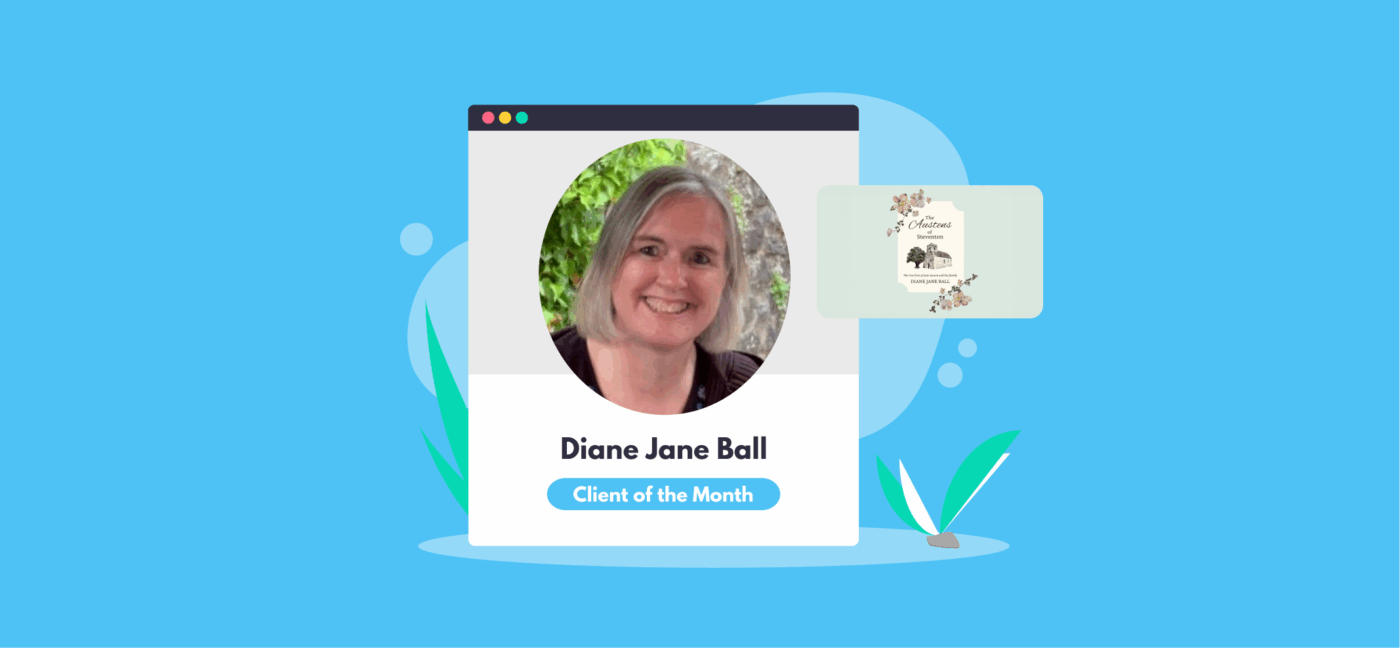

What Happens If I’m VAT Registered and Sell Through an Online Marketplace?
VAT-registered businesses who use online marketplaces (for example Amazon, eBay and Etsy) to sell to UK customers may be confused over who collects the VAT and how. This guide will answer the most frequently asked questions, so you know where you stand when it comes to VAT.
What counts as an online marketplace?
A platform counts as an ‘online marketplace’ if it sets its own sales terms and conditions, handles or enables payments, and is involved in the delivery of goods or services. HMRC doesn’t class the platform as an online marketplace if it’s only used to redirect customers, list ads, or process payments.
How VAT normally works without online marketplaces
We’ll start by explaining how VAT normally works, without online marketplaces getting in the way. Value Added Tax is added to certain goods and services sold in both the UK and EU. If you’re VAT-registered, you’ll need to:
- Charge VAT to customers based on the item or services’ VAT rate
- File VAT returns to HMRC
- Keep digital records for MTD VAT
Who needs to register for VAT?
Again, without online marketplaces, you don’t need to register for VAT until your taxable turnover exceeds the £90,000 VAT registration threshold in any 12-month period. You’ll also usually need to become VAT registered if you:
- Expect your taxable turnover to exceed £90,000 in the next 30 days
- Are based overseas but store goods in the UK (which means the taxable turnover doesn’t apply, and you need to register for VAT immediately)
- Import goods from outside of the UK
- Export goods from the UK to other countries (in which case you might need to register for VAT in that country)
Should I voluntarily register for VAT?
Voluntarily registration does have its perks, such as being able to reclaim VAT you’ve paid out. It can also make you look more credible to suppliers. There are disadvantages though, like the complexity of charging the correct VAT rates and compliance.
How VAT works when you sell through an online marketplace
The VAT registration rules are a bit different if you sell through an online marketplace because the marketplace is sometimes responsible for charging and accounting for VAT. Sometimes.
It all depends on whether you’re a UK or overseas seller, where your goods are based, who you’re selling to, and what the consignment is worth.
Am I a UK or overseas seller?
The first step is working out whether you’re a UK or overseas seller, because this affects your VAT liability. You’re an overseas seller if your customers are in the UK, but you don’t have a UK establishment.
You must have a proper office in the UK, where you actually run your business, to be classed as a UK seller. Having a UK company registration, mailing address, or virtual office doesn’t count as being ‘established’ in the UK.
HMRC want to see your business genuinely operates from within the UK (with the likes of staff, management, resources etc). Otherwise, you’re an overseas seller. When we talk about your status in relation to VAT, you might be described as a non-established taxable person (NETP) for VAT.
The goods and the customer are in the UK at the point of sale
This means the goods are already in the UK when you make the sale, and you’re selling to a UK customer. The rules in this scenario depend on whether you’re a UK or overseas seller.
| UK sellers | If you’re VAT registered, then you need to charge and account for VAT in the normal way – the marketplace will just facilitate the sale. If you don’t need to be VAT registered, then there’s nothing to worry about. |
| Overseas seller | The online marketplace is responsible for charging and paying VAT to HMRC when the goods are sold. Unless the customer is registered for UK VAT and provides the platform with a UK VAT registration number. |
There is an exception to this rule though. If the goods are in Northern Ireland and you are established in the EU, you (the seller) need to account for VAT, not the marketplace.
If the goods are outside of the UK at the point of sale
Things are a little more complicated if the goods are overseas and being sold to a UK customer. In this case, it depends on the consignment value (the total value of goods shipped together, not including delivery or insurance costs if shown separately).
| The consignment is worth £135 or less | The marketplace must collect and pay VAT at the point of sale, regardless of whether you’re a UK or overseas seller. Unless the buyer is a VAT registered business – they’ll account for the VAT instead via a ‘reverse charge’. |
| The consignment is worth more than £135 | Normal import VAT and custom duties apply. The customer (or delivery company on their behalf) pays VAT at the border – meaning the marketplace is not responsible for charging VAT in this case. |
Importing goods into the UK to sell through online marketplaces
You’ll be liable for any import VAT and Custom Duty when the goods are imported into the UK – but you can register for VAT and reclaim any import VAT you’ve paid. They’ll be treated the same as any other goods in the UK when you come to sell them.
VAT-registered businesses might also be able to use postponed accounting to deal with import VAT for goods worth more than £135. Rather than paying import VAT at the border and then reclaiming it on your VAT return, you’ll just account for the charge and the claim all in one go on your return.
Selling goods to UK VAT registered businesses
In this case, the online marketplace will pass the details of the sale to you – including things like the VAT registration number of the business. Overseas sellers will need to charge and account for VAT by:
- Finding the correct VAT rate to charge depending on the nature of the goods
- Registering for VAT in the UK
- Keeping accurate records of the goods sold – once you’ve done this you can apply the correct VAT treatment to them
If the goods are in Northern Ireland, and they’re sold to NI customers
It’s super important to remember Northern Ireland follows different VAT rules for goods (linked to the EU). So, if goods are in Northern Ireland and sold to a NI customer:
- Sellers established in the UK and EU will account for the VAT
- Sellers not established in the UK or EU will have the marketplace account for the VAT
What happens if I don’t follow the VAT rules?
There can be serious consequences if you don’t comply with VAT rules, and HMRC could:
- Penalise you
- Ask for a deposit
- Tell marketplaces you’re non-compliant which means they may suspend your account
If you’re unsure on how to remain VAT compliant, you can authorise an agent to act on your behalf.
If you’re using the Flat Rate Scheme for VAT
It’s important that you leave out any sales where the marketplace or your customer (for example, because they’re a VAT-registered business) has to sort the VAT out themselves if you pay VAT using the Flat Rate Scheme.
This is because it’s not included in the Flat Rate Scheme calculation.
There are other types of VAT accounting schemes too, so contact an accountant for advice if you’re unable to decide which is best for your business.
Learn more about our online accounting services for businesses. Call 020 3355 4047 to chat to the team, and get an instant online quote.
Want to learn more?
Subscribe to our newsletter to get accounting tips like this right to your inbox

Read more posts...

Your Guide to Simple Assessment Tax
30th September 2025Simple assessment is a method HMRC uses to collect income tax in straightforward cases where tax can’t be collected via PAYE, and…
Read More
September 2025 Client of the Month: Diane Jane Ball
30th September 2025This month we spoke to Diane, self-employed English tutor and self-published author. Diane Jane Ball | Facebook | Goodreads Hey Diane! Tell…
Read More
The Accountancy Partnership – Our Positive Reviews
15th September 2025We’re proud of our customer reviews here at The Accountancy Partnership The reviews we receive from our customers show how hard we…
Read MoreConfirm Transactions
The number of monthly transactions you have entered based on your turnover seem high. A transaction is one bookkeeping entry such as a sale, purchase, payment or receipt. Are you sure this is correct?
Please contact our sales team if you’re unsure
VAT Returns
It is unlikely you will need this service, unless you are voluntarily registered for VAT.
Are you sure this is correct?
Call us on 020 3355 4047 if you’re not sure.
Bookkeeping
You will receive our bookkeeping software Pandle for free, as part of your package.
You can use this to complete your own bookkeeping, or we can provide a quote to complete your bookkeeping for you.
Please select and option below:
Call us on 020 3355 4047 if you’re not sure.

